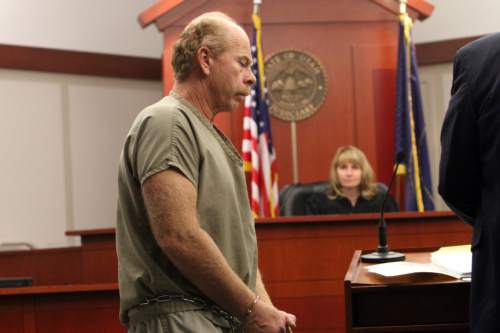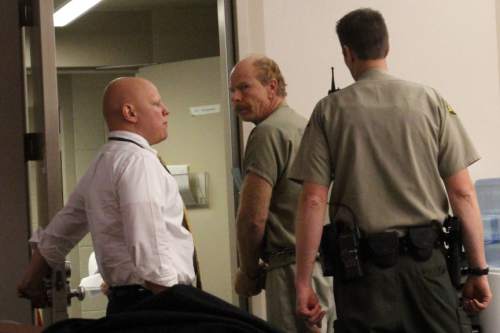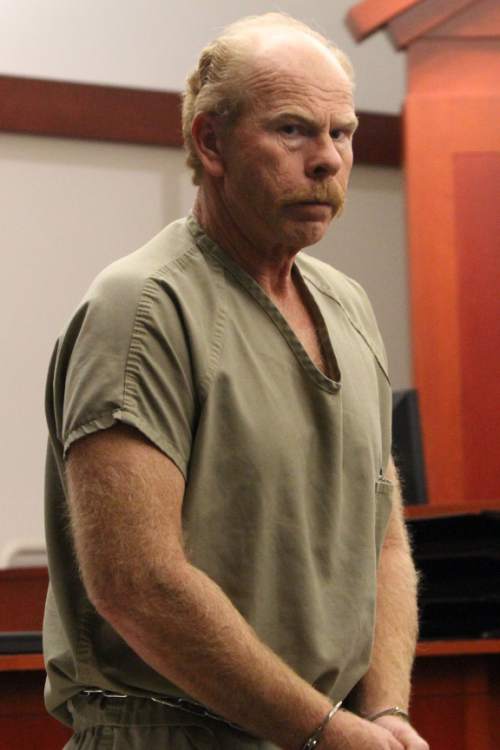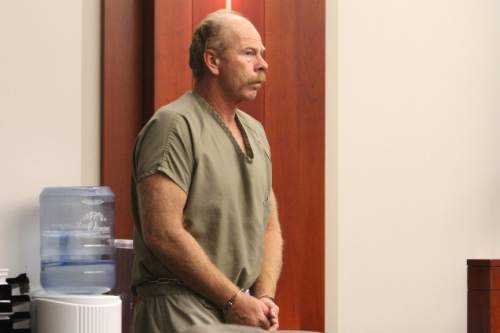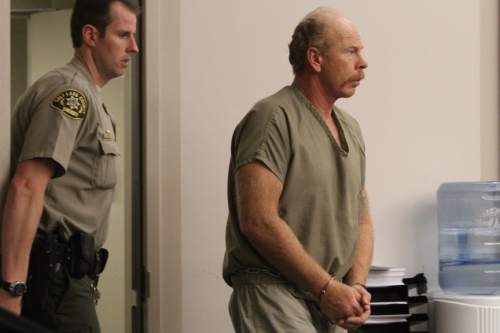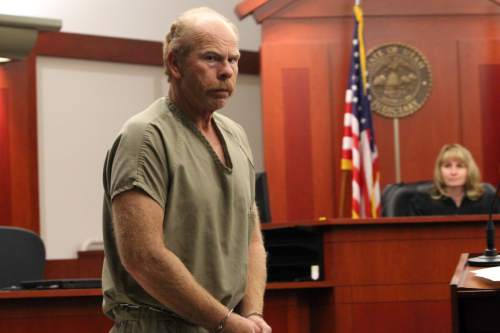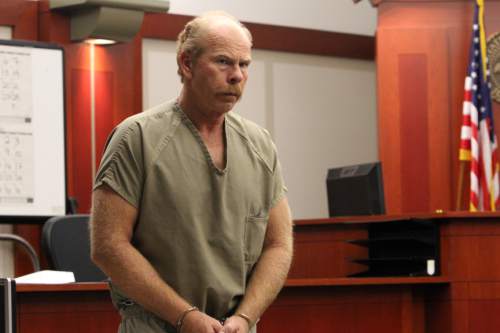This is an archived article that was published on sltrib.com in 2016, and information in the article may be outdated. It is provided only for personal research purposes and may not be reprinted.
A jury deliberated for about three hours Thursday before pronouncing a Murray man guilty of beating his girlfriend to death more than four years ago.
Daniel Jay Folsom, 54, was found guilty of first-degree felony murder for the slaying of 45-year-old Alicia Anne Sherman on the night of Dec. 15, 2011.
He faces 15 years to life in prison when he is sentenced Aug. 26 by 3rd District Judge Elizabeth Hruby-Mills.
But defense attorney Robert Breeze plans to appeal evidentiary rulings, which he said "deprived the defendant of a fair trial."
The victim's mother, Roxanne Wadman, disagreed.
"The man got what he deserved," she said as Sherman's family members hugged and cried after hearing the verdict.
In the prosecutor's closing arguments at the six-day murder trial, he led with evidence that he said appeared "uncontroverted" — the extent of the injuries which led to Alicia Sherman's death.
Sherman died from brain swelling four days after suffering a brutal and violent attack by her boyfriend, said Deputy Salt Lake County District Attorney Bradford Cooley.
The most severe injuries were on her back, the back of her arms, the back of her hands and her head, which Cooley said indicated that the woman hadn't been facing her attacker that night.
Folsom had come home from a dinner with friends — and a night of drinking several beers, as well as shots of vodka and whiskey. His memory of the night was hazy, the man said as he testified Wednesday, adding that he was "blacked out" for the most part.
But based on what he could recall, Folsom said he was sure he acted in self-defense.
Evidence from police showed the two had a history of domestic violence.
Police responded to domestic arguments between Folsom and Sherman 11 times from 2004 to 2011.
Folsom made nine of those calls, said Breeze, who painted Sherman as a "seriously disturbed" and mentally unstable woman who required medication and psychiatric help. He accused the woman of making up lies and playing games.
Cooley offered another theory for her conduct.
"Is [Sherman] playing a game?" he asked the jury Thursday. "Or is [Sherman] exhibiting behavior of a victim of domestic violence?"
Cooley said Sherman loved Folsom and believed him when he told her he was going to change his ways.
"That's the explanation for this history [of domestic disputes]," Cooley said. "She wasn't making things up; she was trying to make things work."
But Breeze argued that Folsom was the "peacemaker in the relationship," and that he cared for and was loyal to Sherman, though she was a "violent person." Folsom had filed, but two weeks later dissolved, a restraining order in 2009.
Breeze said Sherman's tendency to bruise easily — which prosecutors disputed — accounted for injuries that appeared to be more severe than intended. If Folsom had really unleashed a vicious attack, Breeze said, Sherman "would have been beaten to a pulp" and suffered broken bones.
Breeze noted that even the paper-thin bone in her nose, which was bleeding after the assault, remained whole.
Cooley responded to this argument by reiterating that Sherman was apparently facing away from Folsom — and may have been huddled on the floor — as he dealt the blows.
"Even accepting the defendant's fabrication of how he was defending himself," Cooley said, Folsom's use of force was "entirely disproportionate to anything [Sherman] could have done."
Cooley said detectives found chunks of Sherman's hair and blood — as well as blood that matched Folsom's DNA — in multiple rooms, leading prosecutors to believe the brawl extended from one room to the next.
They found a dent in a trash can with Sherman's blood on it in the bedroom, a smashed vase in the hallway and a toilet ring that appeared to have been broken off its hinges in the bathroom, Cooley said.
One of Sherman's head injuries appeared to be a pattern injury, Breeze pointed out, which he believed she suffered from falling down. But Cooley argued that if she had fallen, it was because Folsom pushed her.
Folsom told the jury Wednesday that their relationship had always been "risky business," but that he never hurt her or thought about killing her.
"I wouldn't do that," he said, holding back tears. "I loved her; I cared for her."
But Cooley contended that through the whole process of his case, Folsom has "fabricated" answers that were convenient and have changed over time.
The jury, apparently unconvinced by Folsom's words, decided against finding him guilty of the lesser charges of second-degree felony manslaughter or third-degree felony homicide by assault.
Twitter: @mnoblenews


